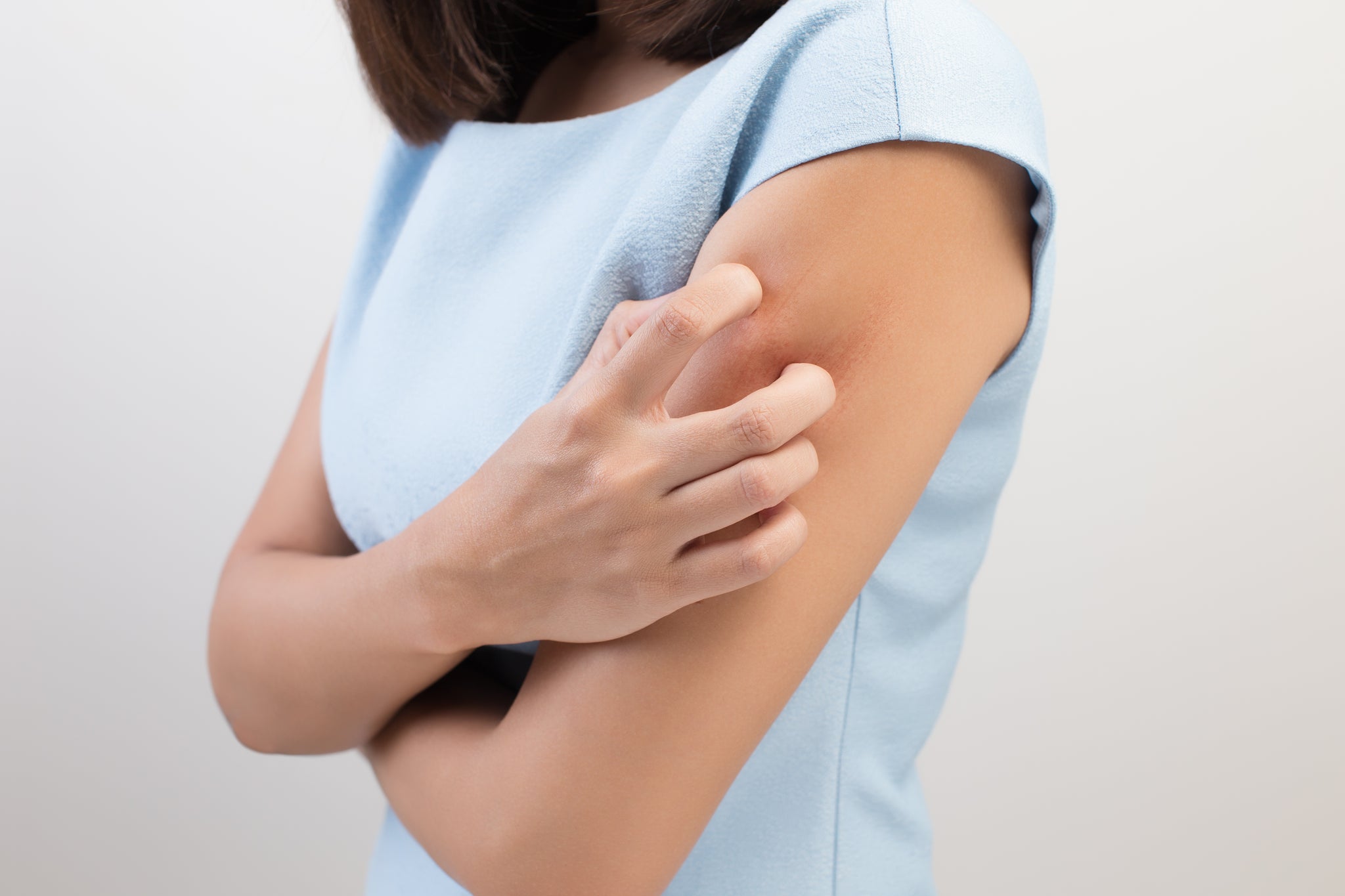Your Cart is Empty
FREE SHIPPING OVER $30

As the mercury drops we are reminded that winter is right around the corner, bringing with it the discomfort of dry, cracked and itchy skin. Every time you slather lotion onto your arms and legs during these cold, dry days, you’re probably wondering, “why does my skin get so dry in the winter?”
WATER IN THE BODY
It’s common knowledge that humans are mostly made of water, but if we want to be exact, the average adult human is made of 50-65% water. The range is based on a number of factors including age, gender, and physical fitness. Fatty tissue holds less water than lean tissue, so people with more muscle generally have a higher water percentage.
Water supports the proper functioning of every system in the body, including assisting your kidneys to effectively filter toxins, providing a medium to transport nutrients and oxygen through the body and aiding in digestion.
Our skin is the largest organ of our body, with its water content falling in the 65% range. Since the skin has such a large surface area it’s profoundly impacted by the climate we live in. Poorly hydrated skin is susceptible to wrinkling, cracking and itching; all extremely common symptoms in the cool, dry months of fall and winter.
WATER AND COLD AIR
The science behind water evaporation and its relationship to temperature can be easily explained with rudimentary physics and chemistry.
Picture a pot of water on a stove. As the temperature rises the water molecules begin to move faster which causes their bonds to break, liberates the atoms into the air which results in evaporation.
If you put that pot of water in the freezer the molecules will begin to move slower causing evaporation to slow to almost a standstill, freezing the water into a solid.
The cold temperatures in the winter means less evaporation, resulting in lower humidity in the air.
WHY DOES SKIN BECOME DRY IN COLD WEATHER?
Because the cold air has less water concentration than your skin does, the process of osmosis takes over, sucking moisture out of unprotected skin, leaving it stretched, flaky and itchy. This phenomenon is called trans-epidermal water loss and can be significant due to the skin’s large surface area.
Dry outside-air combined with our indoor use of forced-air heating systems and daily rituals of hot showers with harsh soaps all contribute to excessively dry skin. These ongoing insults can even cause the development of painful rashes and cracked, bleeding skin.
Frequent bathing in hot water with soaps actually strip the skin of its stratum corneum. The stratum corneum was originally thought to be inert dead skin that had no real use. Research now shows that this topmost layer of skin is actually responsible for maintaining a barrier to the outside world and most importantly it prevents excess water from escaping out of the deeper layers of skin.
AGE RELATED DRY SKIN
With age, our skin loses its ability to retain moisture. Collagen, normally found in the thick, lower or dermal layers of the skin, becomes depleted, causing skin to become thin and wrinkle. Adequate levels of collagen increase the dermal density, making it more effective at holding water.
Surprisingly, skin pigmentation also seems to have an effect on water loss. Studies have suggested that darker skin experiences more trans-epidermal water loss on average than lighter skin.
HOW TO SOOTH DRY, ITCHY SKIN
 is made in Canada for guaranteed superior quality. Proven safe and highly effective, DeepMarine collagen peptides stimulate fibroblasts in the skin to increase collagen production. This results in elevated collagen density in skin, a reduction in transdermal water loss and more hydrated, healthy and younger looking skin.
is made in Canada for guaranteed superior quality. Proven safe and highly effective, DeepMarine collagen peptides stimulate fibroblasts in the skin to increase collagen production. This results in elevated collagen density in skin, a reduction in transdermal water loss and more hydrated, healthy and younger looking skin.